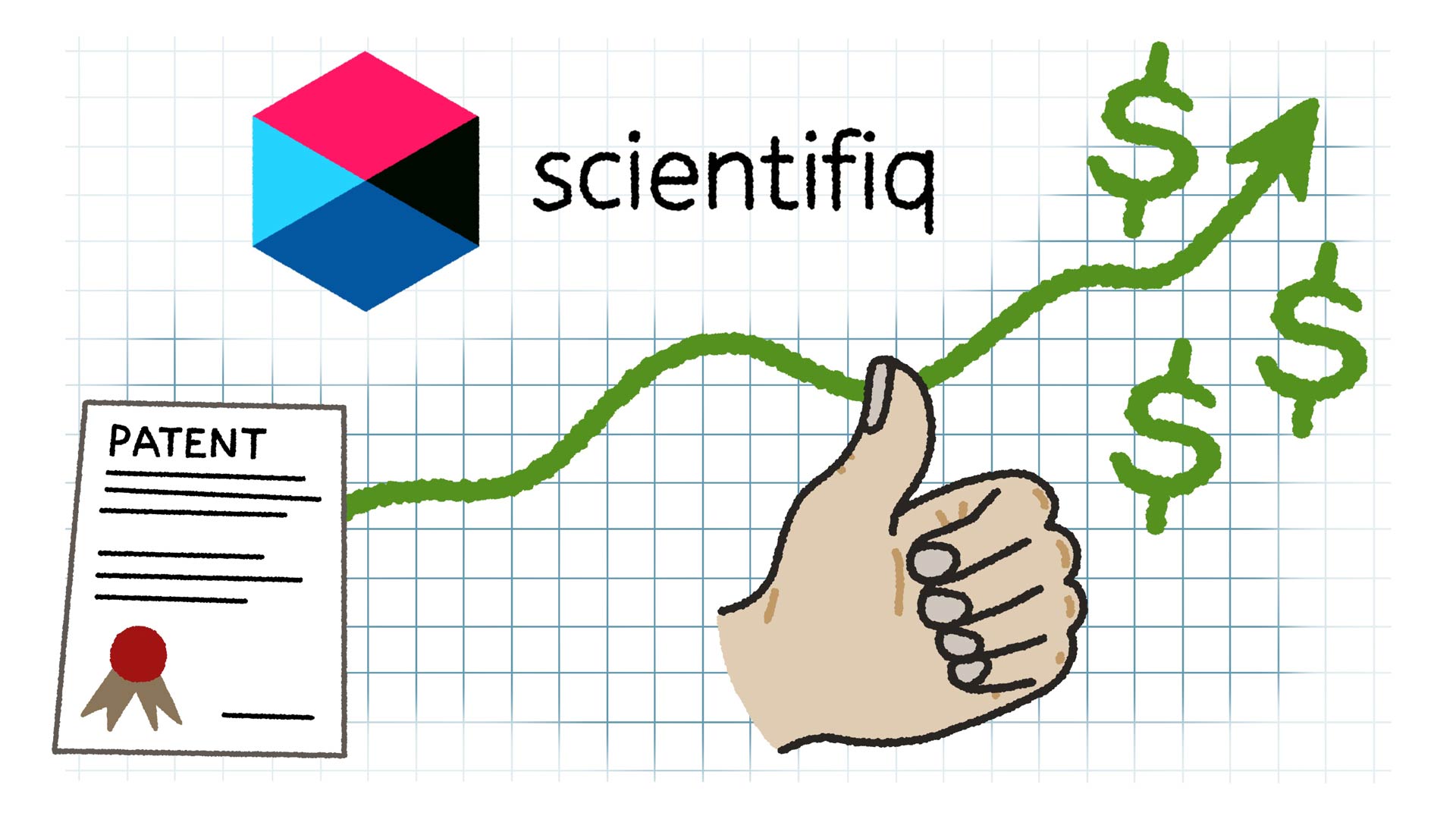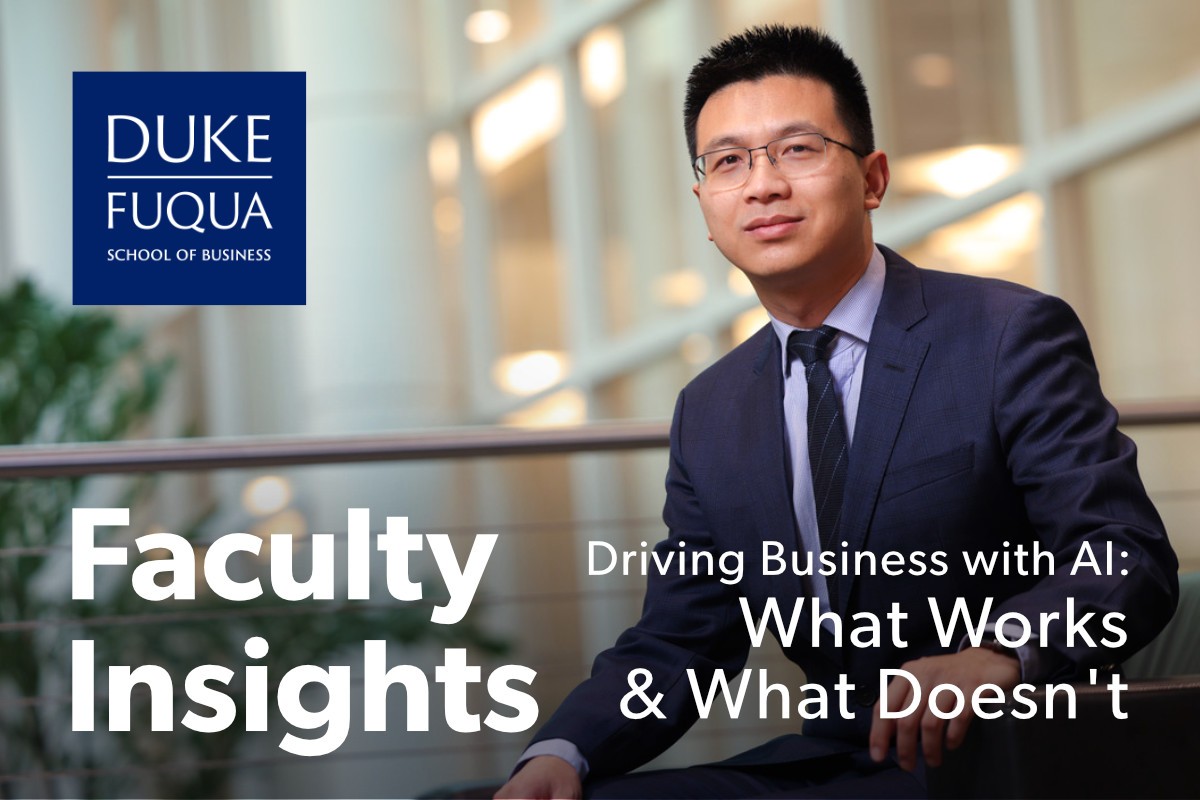Breakthrough research that shapes tomorrow’s intelligent organizations: optimizing complex operations, reimagining workplaces, accelerating innovation, and governing AI responsibly.
Decision-Making & Business Optimization
Fuqua researchers are using AI to improve how businesses make decisions, forecast outcomes, and optimize performance across complex systems. Saša Pekeč explores the opportunities and risks of deploying AI in managerial contexts. Yehua Wei applies machine learning models to enhance supply chain efficiency and operational planning. David Brown develops AI applications for energy sector optimization and utility management. Jiaming Xu develops statistical and algorithmic methods for learning and decision-making in complex networks, advancing the AI foundations that support scalable, data-driven business analytics. Alex Belloni develops causal inference methods and advanced statistical techniques that help businesses make data-driven decisions in complex, uncertain environments.
- AI Needs Human Brainpower
- Business Decisions with AI: Causality, Incentives & Data
- Explaining the “T” in ChatGPT
- A New Solution for Dynamic Matching: Saving Lives and Improving Efficiency
Operations Management & Supply Chain Intelligence
Operations faculty at Fuqua are using AI to revolutionize supply chain management, inventory optimization, and operational decision-making across industries. Kevin Shang develops data-driven approaches that help companies balance supply and demand more effectively. This research transforms how businesses handle complex operational challenges, from retail inventory management to logistics optimization, providing practical solutions for real-world supply chain problems.
Organizations & Human-AI Interaction
Fuqua faculty investigate how AI is reshaping workplace behavior, team collaboration, and organizational dynamics. PhD student Jess Reif, Rick Larrick, and Jack Soll examine how workers who rely on AI tools are viewed by colleagues, uncovering critical insights about trust, delegation, and productivity in human-AI teams – research that directly informs how organizations can build more effective collaborative AI cultures.
Entrepreneurship & Innovation
AI is transforming how entrepreneurs build, fund, and scale new ventures. Fuqua’s AI Entrepreneurship course prepares students to lead in this space, while faculty are developing tools to bring innovation to market. Sharique Hasan, Wesley Cohen, and PhD student Roger Masclans are building AI-powered algorithms and platforms that assess the commercial potential of university research, now in use at technology transfer offices across the country. Their work bridges the gap between scientific discovery and entrepreneurial execution.
Market & Consumer Insights
Researchers at Fuqua are using AI to decode consumer behavior, personalize engagement, and inform marketing strategy. Christine Moorman studies how AI adoption impacts marketing performance and organizational capabilities, tracking industry trends through comprehensive surveys of chief marketing officers. Keisha Cutright investigates how psychological and cultural factors influence consumer trust in AI recommendations and decision-making systems. Tong Guo integrates AI and econometrics to analyze unstructured data and uncover causal relationships. Other projects focus on improving communication between healthcare providers and patients, including AI-generated explanations of insurance benefits that help consumers better understand their medical costs.
- Research Suggests Thinking About God Makes People More Likely to Trust AI Recommendations
- Marketers Say Artificial Intelligence Has a Positive Impact on Performance
Policy & the Societal Impact of AI
Fuqua faculty are exploring the broader societal implications of AI adoption—including its effects on privacy, fairness, regulation, and user experience. Professor Ali Makhdoumi, in a series of research projects, examines how to transact data for AI-driven business activities responsibly and how to design platforms that mitigate potential harms associated with AI. Two examples of his recent work include an investigation into how market incentives can lead to excessive data sharing—a concern highlighted in the 2023 Economic Report of the President—and the development of a theoretical framework showing how the vast amounts of data collected by online platforms may enable behavioral manipulation, ultimately harming users.








